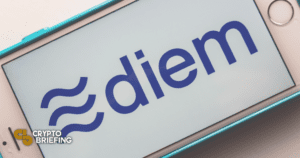Key Takeaways
- Andreessen Horowitz is one in every of the most performed traders in the know-how and cryptocurrency home.
- No topic its impressive music document, the company has made some blunders over time.
- A few of its worst bets consist of OpenBazaar, Diem, Foundation, and BitClout.
Andreessen Horowitz established itself as a crypto heavyweight by placing profitable bets on industry mainstays appreciate Uniswap, Solana, and Sky Mavis early on. The company also launched a document-breaking $4.5 billion crypto fund in Might well 2022, highlighting its dedication to blockchain know-how. Nonetheless even Silicon Valley’s high gamers operate funding blunders in most cases. Listed below are a pair of of the cease failed crypto initiatives Andreessen Horowitz has made execrable bets on at some level of the previous couple of years.
Andreessen Horowitz and OpenBazaar
OpenBazaar changed into an early crypto project with links to Bitcoin’s darkish market era. The project attempted to operate a decentralized undercover agent-to-undercover agent marketplace for goods and companies and products, an related to an originate-offer version of eBay with cryptocurrency funds.
OpenBazaar changed into coded by Bitcoin developer Amir Taaki and a community of programmers from the startup Airbitz as fragment of a Toronto Bitcoin hackathon in April 2014. Alternatively, the project’s creators later abandoned it, and the code changed into adopted and rebranded to OpenBazaar by a brand novel personnel of builders. The major version launched on April 4, 2016.
As OpenBazaar, the project attracted curiosity from so much of of crypto’s high project capital companies. Andreessen Horowitz, Union Square Ventures, and Digital Currency Neighborhood all backed OpenBazaar by its seed funding rounds. Andreessen Horowitz contributed to OpenBazaar’s $1 million and $3 million seed rounds to boot to a later $5 million Sequence A elevate. In line with info from Crunchbase, OB1, the corporate growing OpenBazaar, purchased more than $9 million in project capital funding for the length of its life.
Alternatively, despite its early success and tall funding, OpenBazaar changed into unable to nick out a attach for itself in the impulsively expanding crypto industry. On January 4, 2021, OB1 launched that it will conclude supporting the OpenBazaar marketplace’s wallets, APIs, search engine and internet attach, successfully ending the project.
Dilapidated OB1 CEO and OpenBazaar project lead Brian Hoffman shed some mild on the project’s downfall in a July 2021 CoinDesk interview. He mentioned that conflicting narratives of Bitcoin being every an funding and a funds procedure changed into the final notice headwind for OpenBazaar. “Crypto, in particular Bitcoin, evolved from a low-stamp money different into a store of price—a digital gold—that didn’t operate it conducive to day-to-day Amazon-form e-commerce purchases,” he mentioned.
In hindsight, Hoffman also theorized that if OpenBazaar had prioritized stablecoin toughen early and monetized the platform by charging a limited fee on all transactions, it’ll moreover impartial have had the next chance of success. Though OpenBazaar had a sturdy foundation and an all-massive title roster of backers, its failure will help as a reminder of the dreadful nature of project investing.
Diem’s Downfall
Diem changed into Facebook’s answer to rising curiosity in cryptocurrency funds, and it purchased massive toughen from Andreessen Horowitz and other heavyweights early on. Facebook launched Diem under the title Libra in June 2019, touting it as a technique to ship money across its suite of social media platforms without relying on third-celebration intermediaries or complex currency conversions.
Planned as a stablecoin pegged to the dollar, the project changed into residing to speed on a permissioned blockchain-essentially based procedure created by the corporate’s builders. It rebranded from Libra to Diem in December 2020, preceding Facebook’s October 2021 Meta revamp because it launched a pivot toward the Metaverse.
Though Diem fell under the corporate’s centralized trend, it delegated administration to a third celebration is called the Diem Affiliation, of which Meta changed into one in every of many participants with equal vote casting weight. This cohort of companies acted as stewards for the Diem currency whereas also overseeing its trend.
Andreessen Horowitz changed into an early investor in the Diem project and a member of the Diem Affiliation alongside project companies appreciate Breakthrough Initiatives, Union Square Ventures, and Temasek Holdings. It’s unclear how well-known capital Diem raised, or the amount that Andreessen Horowitz contributed. In line with a July 1 article from CNET, many of the Diem Affiliation participants had been expected to make contributions as well-known as $10 million every to the project’s trend.
Esteem many of Andreessen Horowitz’s investments, Diem began out with tall toughen from industry heavyweights. Early backers equivalent to eBay, Mastercard, PayPal, Stripe and Visa hinted that Diem changed into neatly positioned to bridge the hole between historical finance and crypto. Alternatively, because the project grew, it drew growing scrutiny from U.S. lawmakers.
In 2019, so much of conflicts with regulators and politicians weighed on Diem’s prolonged-period of time viability. A July Senate Banking Committee listening to resulted in policymakers evaluating Diem and its creators to arsonists and remark villains, with one in every of the more vocal critics, Senator Kennedy(R-LA), expressing his skepticism in regards to the project by announcing, “Facebook desires to govern the monetary offer. What might per chance well well moreover impartial be ready to transfer inferior?”
A few prominent Democrats from the U.S. Dwelling Committee on Monetary Services weighed in, sending a letter asking Meta to conclude Diem trend, citing privateness, national safety, procuring and selling, and monetary protection concerns. Federal Reserve chair Jerome Powell also remarked that the Fed had “excessive concerns” over how Diem would deal with concerns equivalent to money laundering and user safety.
The President’s Working Neighborhood on Monetary Markets doubled down on these concerns, pointing out that combining a stablecoin issuer with a enormous company “might per chance well well moreover outcome in an excessive concentration of business vitality.” Even old President Donald Trump joined in airing his skepticism toward the project. “If Facebook and other companies must changed into a bank, they should watch a brand novel Banking Structure and changed into discipline to all Banking Guidelines,” he mentioned in a tweet.
After resounding pushback against Diem in the U.S., eBay, Mastercard, Mercado Pago, PayPal, Stripe, Visa Inc., and other key backers withdrew their toughen. After two more years of sluggish trend and persisted regulatory strain, the Diem Affiliation made a deal to sell the know-how in the help of the project to Silvergate Capital Corp for $200 million in January 2022. The sale marked the cease of the Diem project in its most modern kind.
Backing Nader Al-Naji’s Foundation and BitClout
The final Andreessen Horowitz funding blunder on our checklist comes in the form of a double characteristic: Foundation and BitClout.
First up is Foundation, a decentralized, algorithmic stablecoin project co-founded and led by one in every of crypto’s most unfriendly entrepreneurs—Nader Al-Naji. The project aimed to retain its Foundation stablecoin pegged to the dollar by on-chain auctions, which issued “bond” and “fragment” tokens to alter the Foundation offer. Foundation changed into formidable in its mission, announcing it desired to operate a “better monetary procedure” that might per chance be immune to hyperinflation, free from centralized regulate, and more sturdy than the novel solutions for transferring wealth. The project changed into an early strive at making a precise, unbacked, dollar-pegged token, serving as inspiration for other failed stablecoin initiatives appreciate Foundation Money and Terra.
Questions of viability apart, Foundation made sure it looked the fragment with wintry fintech branding and a personnel of old Google and Goldman Sachs workers. Under Al-Naji’s guidance, Foundation raised $133 million in April 2018, attracting massive names appreciate Bain Capital Ventures, one-time Federal Reserve governor Kevin Warsh, Lightspeed Enterprise Companions, and Andreessen Horowitz.
Alternatively, neither the Foundation personnel nor the project’s backers had performed their homework on U.S. securities guidelines. It rapidly grew to changed into clear that the bonds and shares ragged to anchor Foundation to its dollar peg would constitute unregistered securities, that potential they’ll be discipline to transfer restrictions. As U.S. securities guidelines are notoriously sophisticated to navigate, Foundation realized that making a “better monetary procedure” wasn’t going to be as straightforward because it had originally anticipated.
In December 2018, eight months after its $133 million elevate, Al-Naji posted an announcement on the Foundation internet attach revealing that it might per chance per chance be shuttering and returning its closing capital to its backers. “Sadly, having to prepare U.S. securities guidelines to the procedure had a excessive negative impact on our ability to commence Foundation,” the post learn, adding that complying with securities guidelines would impact the project’s censorship resistance and decrease liquidity for its on-chain auctions.
No topic getting burned by Foundation, Andreessen Horowitz decided to steal one other bet on Al Naji when he launched his subsequent blockchain startup: BitClout.
Marketed because the first blockchain-essentially based social media platform, BitClout lets customers post updates and photos, award money to other customers’ posts, and exhaust and sell what it calls “creator coins”—customized tokens whose price depends on of us’s reputations. BitClout runs by itself Proof-of-Work blockchain known as DeSo, brief for “Decentralized Social.”
No longer like Andreessen Horowitz’s old flunked investments, the company contributed by procuring tokens in DeSo’s preliminary coin offering (ICO). In line with Crunchbase info, BitClout raised $200 million from 14 traders by its ICO, placing the sensible contribution from every at round $14.2 million. Whereas facts on how many tokens traders purchased and the vesting period are unknown, DESO is currently 97% down from its June 2021 all-time excessive of $198.68, per CoinGecko.
Interest in BitClout hasn’t been helped by the negative thought the platform has earned itself since its commence. Within the origin, to exhaust creator coins on BitClout, customers wished to ship Bitcoin to the DeSo blockchain, which changed into then remodeled into BTCLT at a one-to-one ratio. Alternatively, as soon as on DeSo, there changed into no diagram to transform BTCLT help to right Bitcoin, successfully trapping customers’ funds. The withdrawal jam has since been in part resolved after DeSo made its code originate-offer. Gentle, many early customers misplaced appreciable amounts of cash due to the the variation in quiz between Bitcoin and BTCLT.
Though BitClout and the DeSo blockchain are quiet energetic, their futures don’t watch vivid. The preference of wallets and creators interacting with the BitClout platform appears appreciate it’s plateaued, and procuring and selling volumes for BitClout’s creator coins are at an all-time low. Many have complained that BitClout monetizes Twitter profiles without their dwelling owners’ permission. Stephen Palley, a partner at legislation company Anderson Waste., has also argued that the DeSo ICO might per chance well well moreover impartial quiet had been classed as an unlawful securities offering.
In mild of yet one other of Nader Al-Naji’s crypto initiatives failing to steal into consideration U.S. securities guidelines, in all chance Andreessen Horowitz might per chance well well moreover impartial quiet steal be aware of a definite ragged adage when brooding about its future investments. “Fool me as soon as, disgrace on you; fool me twice, disgrace on me.”
Disclosure: On the time of writing this characteristic, the creator owned ETH, BTC, and so much of different other cryptocurrencies.
The tips on or accessed by this internet attach is obtained from fair sources we judge to be proper and legitimate, however Decentral Media, Inc. makes no illustration or guarantee as to the timeliness, completeness, or accuracy of any info on or accessed by this internet attach. Decentral Media, Inc. is rarely any longer an funding handbook. We conclude no longer give customized funding advice or other financial advice. The tips on this internet attach is discipline to switch without seek. Some or all of the guidelines on this internet attach might per chance well well moreover impartial changed into older-popular, or it’ll moreover impartial be or changed into incomplete or incorrect. We might per chance well well moreover impartial, however are no longer obligated to, change any old-popular, incomplete, or incorrect info.
You might per chance well well per chance presumably moreover impartial quiet in no diagram operate an funding determination on an ICO, IEO, or other funding per the guidelines on this internet attach, and likewise it is in all probability you’ll well well per chance moreover impartial quiet in no diagram elaborate or in any other case depend upon any of the guidelines on this internet attach as funding advice. We strongly suggest that you simply consult a licensed funding handbook or other qualified financial expert whereas you are hunting for funding advice on an ICO, IEO, or other funding. We conclude no longer get compensation in any kind for analyzing or reporting on any ICO, IEO, cryptocurrency, currency, tokenized gross sales, securities, or commodities.
a16z Finalizes File-Breaking $4.5B Crypto Fund
Andreessen Horowitz has confirmed this might per chance occasionally in all probability well well lunge forward with a brand novel $4.5 billion crypto funding fund after rumors the company changed into planning a document-breaking elevate unfold earlier this Twelve months. a16z…

The BitClout Grifter Desires to Elevate Your Ethereum By potential of a DAO
Nader Al-Naji, the entrepreneur in the help of the tumultuous BitClout project, has launched a brand novel platform known as (DAO,DAO). The project targets to streamline the route of of making and running a decentralized self ample…

Facebook Ditches Diem Stablecoin Plans in $200M Sale
Facebook’s cryptocurrency initiative Diem appears to be coming to an cease. Experiences emerged that the corporate would sell its know-how to California bank Silvergate Capital Corp for $200 million. Facebook…



